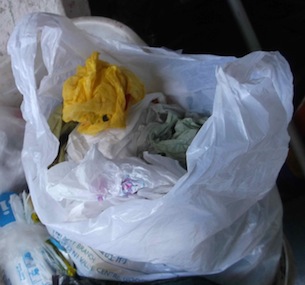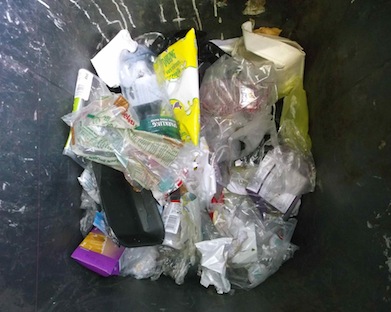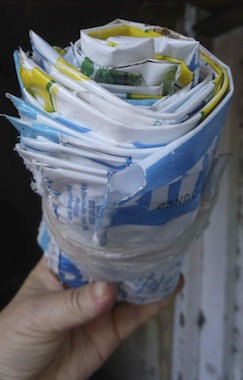Dear Reader, in this age of AI created content, please support with your goodwill someone who works harder to provide the human-made. Sign up in the righthand column or bottom of this page. You will receive my hand illustrated monthly newsletter RESTORE NATURE and access to the biodiversity garden design course as I write...and nothing else, I respect your time.
you can do a lot to RECYCLe PLASTIC
Why would one want to recycle plastic in the first place ? Well, it comes from un-renewable fossil fuels mainly, it is not biodegradable, it is hard to recycle in many present waste management systems, it is polluting the oceans, and thus all in all a wasteful and destructive use of resources, and recycling (technically the term should be re-using) could slow down plastic production.
where does plastic come from ?
There are natural polymers, or plastics such as casein, formaldehyde and cellulose,in biological substances from milk to animal horn, rubber, amber and plant fibre but most of the plastics we use are synthetic, or artificial, are made from fossil fuels and are non-biodegradable (see Wikipedia on plastic recycling)
blame and shame ?
One of the biggest pollution scandals of recent years is ocean pollution by plastic waste, or rubbish. 8 million tonnes of plastic find their way into the ocean every year. Often this is more than global production of plastic as older items like fridges add to the pollution. In the first major global study of its kind to determine the sources and quantities reaching the ocean the study by Jambeck et al. (2015) follows the rubbish using a model based on data on solid waste, the quality of waste management systems, population density and economic status, of many ocean fronting countries to find the quantities of plastic waste reaching the ocean. Plastic production is climbing so it will get worse. The chief culprits are estimated to be China, Indonesia, the Philippines, Vietnam and Sri Lanka, who need to make improvements in their waste management, the higher income countries, says the article, need to recycle more, re use and force some of the burden of waste back onto the producers. A deposit on all plastic given it at the beginning of its life cycle, thus giving plastic waste value has been proposed as a major solution.
(Jambeck et al. 2015. Plastic waste inputs from the land into the ocean. Science Vol 347, page 768-771. The article url : http://science.sciencemag.org/content/347/6223/768 )
If this is not enough of a motivator to recycle plastic, and cut its ejection into our water systems, you should see what it does to sea animals. Ten years ago in Cape Town harbour, I saw a seal with a noose of packaging tape which has cut 5 cm into its fatty neck flesh, bleeding, and fighting everyone who is trying to help. According to the Two Oceans Aquarium this happens all the time.
motivate producers to recycle plastic
For the consumer, putting the burden back on the producer means that you should be able to collect your plastic and return it to the place you bought it.
This puts pressure on retailers to buy less wastefully packaged goods, in turn putting pressure on producers to recycle plastic, and cut down on other wasteful non-green packaging practices. There are packaging design guidelines which in my country I’m sure few producers adhere to, judging from the layers of plastic and cardboard in which most products are encased, even fresh fruit.
So this was the talk in the air a while back when I was in Germany. I really want to recycle plastic. It builds up more than any other waste material in the home. I tried returning the plastic waste to the Supermarket in Germany. The retailer accepted my returned plastic. I tried it in South Africa. The retailer took the first lot, but refused the second, and said it was not their policy and I was not to do it again. This was a while back. If you try it today we can publish a name and shame list.
plastic is hard to Recycle
Re-using plastic is what the consumer can do best, because to recycle plastic, technically speaking, requires melting it down and forming it into new products. Despite experiments with smelting plastic as a kid, in which it exploded into flame and stank awfully, I'd say true recycling is beyond your average re-user. Plastic recycling is a process with complex barriers in terms of its chemistry. This means it is often not recycled, but ‘down cycled’ that is to say it is not used for the original type of product, but for one with lower quality specifications in terms of strength and so forth. This is because there are so many kinds of plastic and so many admixtures made, and the recycling process is hindered by the mixing of plastic types and additives in the plastics. ‘Pure’ plastic, consisting only of one type, and without color and fillers is thus more easily recyclable.
Plastic labeling codes
There are only about seven major groups of plastic used commercially, and these are identified by labels in some countries to aid the recycling process, so that they can be separated easily. Keep an eye out for the marks in the little black triangles of arrows, with labels 01- PET, 02-PE-HD, 03-PVC, 04-PE-LD, 05-PP, 06-PS and 07-O. (see Wikipedia on Plastic recycling)
If the plastic is not marked, you are justified in complaining that the retailer is using plastics which are not easy to recycle, possibly non recyclable.
Re-use
This is an area in which the consumer can recycle plastic and make an impact in their own home. By reusing each item once, instead of using NEW jiffy bags to bag your stuff in the freezer, pack lunches, etc. you are halving the plastic waste you produce. As said, truly to recycle plastic involves sophisticated technology, though I've seen small smelters in a TV show about recycling plastic in Mumbai (Trashopolis, I believe it is my all time favorite series, all friends and family, I want it for Christmas). By putting plastic into permanent circulation in your home, and refusing to take on new plastic from retailers, or returning all your plastic to the retailer, as discussed below, you can symbolically at least, reduce your plastic waste to zero.
 colourful packaging for worms and vermicompost bought at the factory door
colourful packaging for worms and vermicompost bought at the factory doormotivate re-cycling
Return all your plastic
Returning your plastic to the store is a huge motivator to the macro-polluters, who are ‘dumped’ with the problem, to find some way of getting value out of the returned plastic or forcing their suppliers to recycle plastic.
Deposits on all plastic items
Deposits on plastic items will mean that people can make money from collecting it and separating it, at the coal face of the recycling industry, and it will also mean that recycling technology (smelting) will become more motivated, as plastic will have more value. This was the idea with putting a deposit on glass in many countries, as glass in itself has little value. One could petition the government and waste disposal infrastructure to do this. The cost would have to be born by the first purchaser, by adding a few cents to purchased items. Imagine the trickle down effect to the poorest of the poor, the recycling agents on the street, who have no motivation to recycle plastic at present, which constitutes most of the non biological waste in your bin (the biological waste is so easily processed with worms).
solutions here ? deposits, re-use with present products and design for re-use in future products
I think re-use is the most environmentally friendly way to recycle plastic, as it does not involve the application of heat, in the smelting and all the chemical complications. But I am not professionally knowledgeable on plastics or the disinfection processes which may be more costly. However, If in the original design process, containers were designed with further uses in mind, durable and flexible in function, more people would reuse them, and the retailers suppliers could take back the plastic, disinfect it and repackage and re-label it and sell it back to us. Thorough washing, then solar disinfecting, or UV irradiation, or low grade boiling with solar water heaters could be used.
This would mean we’d have to put an end to those flimsy fruit weighing bags which cannot survive the trip home from Shoprite, and we'd need to recycle plastic less, as we would re-use more. We’d use little buckets like the yogurt containers instead for weighing our veggies. The fruit would not get crushed on the way home. Win win if you ask me. In Afrikaans recycling is called “Herwinning” or re-winning. Thumbs up to Afrikaans for its way with words !
flaws in The international ocean pollution study ?
The article abstract (I cannot afford the full thing) left me with an uneasy feeling which may be dispelled by reading the whole article .... or not. Firstly there is mention of the odd fact that scientists do not know what happens to all the plastic entering the ocean. I surmise, either it is disappearing, hidden in fishes stomachs and so forth, as they say, or it is actually bio-degradable, or it is not entering the ocean in the quantities they predict. Of course the study latches onto the first possibility of it being hidden somewhere and doubtless money will be poured into finding out what happens to the plastic in the ocean. Secondly, based on some Western Scientists’ evaluation of countries around the world and their waste disposal infrastructure, they determine the culprits to be a group of countries on the other side of the world, their major competitors, nonetheless. I would like to let you in on a secret. A friend told me once that there was good money to be made taking plastic bags sorted from the waste in Germany, to Ghana, where at that time, plastic bags were in high demand and had low supply, meaning there was a huge market for second hand plastic packets. Now Ghana probably has been rated by the study as having poor waste disposal infrastructure, yet every bag was worth money, just from supply and demand factors. This may at the time have forced Ghana into producing no plastic waste, not in the form of shopping bags. The study does not appear to mention such market sub-sectors, and inbuilt self-correcting dynamics are not assigned to any of the emerging economies in the far East with regard to plastic disposal. It seems it is assumed that all plastic produced goes into waste, or recycling, based on present American consumption patterns. If controlling and recycling systems are poor as they are in other countries, then a certain percentage lands up in the ocean. I would really like to see this article in full to see if re-use is calculated in as it is such a small factor in the United States, where used plastic has no value. Furthermore the overall thrust of the article is to force the eastern emerging nations into adopting better waste management infrastructure, in which companies from the ‘developed world’ will doubtless be involved as highly paid consultants, service providers etc. The issue of waste and global blame stinks to the heavens. The TV program ‘Trashopolis’ shows how creatively many countries deal with waste, from Lagos to Mumbai. Scarcity of supply may be a more effective motivator to recycle plastic, and thus a de-polluter than the most sophisticated technology in the countries producing the surplus. Not to take the pressure off emerging economies with poor waste disposal infrastructure, to recycle plastic or to suggest that what is happening to turtles and so forth is not a horrible disaster, but please keep the pressure on the BIGGEST global producer of plastic waste and ALL that the top position entails, put the eye on them, as intensely as they put the eye on the rest of the world.
---------
---------
---------
---------
---------
---------
Restore Nature Newsletter
I've been writing for four years now and I would love to hear from you
Please let me know if you have any questions, comments or stories to share on gardening, permaculture, regenerative agriculture, food forests, natural gardening, do nothing gardening, observations about pests and diseases, foraging, dealing with and using weeds constructively, composting and going offgrid.
SEARCH
Order the Kindle E-book for the SPECIAL PRICE of only
Prices valid till 30.09.2023
Recent Articles
-
Geography Research Task
Jan 31, 25 11:37 PM
To whom it may concern My name is Tanyaradzwa Madziwa and I am a matric student at Springfield Convent School. As part of our geography syllabus for this -
Eco Long Drop Pit Latrines Uganda
Nov 29, 24 02:45 AM
Good evening from the UK. My name is Murray Kirkham and I am the chairman of the International and foundation committee of my local Lindum Lincoln Rotary -
Landscape Architect
Oct 01, 24 10:42 AM
I so appreciate your informative description! Your experimentation and curiosity with the seeds, germination, and rearing of the maggot are exciting to
"How to start a profitable worm business on a shoestring budget
Order a printed copy from "Amazon" at the SPECIAL PRICE of only
or a digital version from the "Kindle" store at the SPECIAL PRICE of only
Prices valid till 30.09.2023







